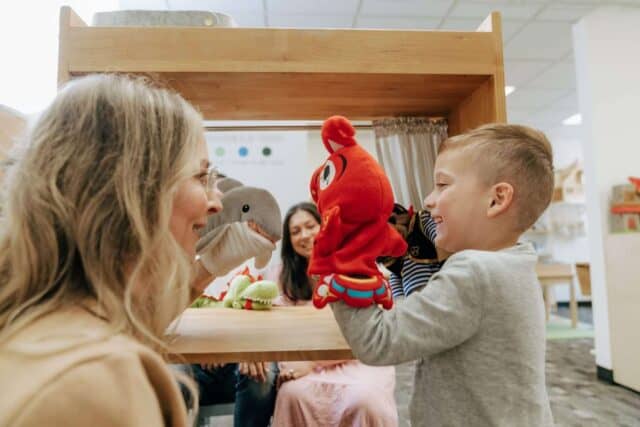April is National Counseling Awareness Month
by Kimberly Bartlett, LICSW, LCSW, RPT-S™
Did you know that April is National Counseling Awareness Month? Since 2020, about 30 million American adults have seen a therapist. In 2021, about 42 million people received treatment or counseling for their mental health and about 17% of American teens see a therapist each year. Further statistics report that in 2019, 10% of US children ages 5-17 years participated in therapy with a mental health professional, while 2021 data shows that 14.9% of children in the same age bracket had received treatment in the last 12 months. In 2022, 6 in 10 parents sought therapy for the entire family.

The COVID-19 pandemic was certainly a strong factor in the rising rates of children’s and family counseling services, with major stressors such as remote learning, social isolation and grieving the loss of family members contributing to overall compromised mental health. Highly specialized therapeutic services to treat broader issues such as child behavioral concerns, trauma, developmental differences, or anger management issues continue to be top priorities for family therapists to teach healthy emotional expression methods and how to build stronger coping and life management skills.
Further research shows that it takes the average child five therapy sessions before they start to feel comfortable with their therapist. Building an effective partnership with your family therapist is a crucial aspect of successful therapy outcomes. Establishing a strong connection with your therapist can greatly enhance the therapeutic process and contribute to positive changes within your family.
Here are some key strategies to help you build a meaningful partnership with your family therapist:
- Openly express your needs and expectations. Candid communication is vital in fostering a collaborative relationship with your therapist. By clearly articulating what you hope to achieve from therapy, you pave the way for a more tailored and understanding approach that addresses your specific concerns and goals.
- Make sure to follow through with the recommendations provided by your therapist. Consistency and commitment are essential for progress in therapy. By actively engaging in the therapeutic process and implementing the suggested strategies, you demonstrate your dedication to growth and change within your family system.
- Providing feedback on your progress is crucial. Sharing how the therapy interventions are impacting your family allows your therapist to adjust their approach accordingly. This feedback loop ensures that the therapy remains effective and aligned with your evolving needs, leading to a more responsive and adaptive therapeutic environment.
- Don’t be afraid to advocate for your needs during therapy sessions. Speaking up for yourself, seeking clarification, or requesting adjustments in the therapy approach empowers you to take an active role in your healing journey. Remember, therapy is a collaborative effort, and your input is valuable in shaping the direction of the sessions for the benefit of your family’s well-being.
Approach therapy as a collaborative endeavor for growth. Engage with your therapist as a team to work towards common goals and foster a supportive environment for positive change within yourself and family. Trust in the process, communicate openly, and embrace the journey of healing and growth with faith in your family’s potential for positive transformation. By building a strong partnership with your family therapist based on communication, commitment, feedback, advocacy, and collaboration, you can enhance the effectiveness of therapy and promote healing within your family unit.
By incorporating strategies centered around communication, commitment, feedback, advocacy, and collaboration, you have the opportunity to significantly improve the effectiveness of therapy within your family. Effective communication is key in fostering understanding and resolving conflicts. Commitment to the process is essential for long-term growth and healing. Providing and receiving feedback constructively can help address issues and promote positive change. Advocating for each other’s well-being and collaborating as a cohesive unit can strengthen family bonds and support each member’s individual healing journey. It is important to trust the process, communicate openly, and embrace the healing journey with confidence in your family’s potential for transformation. Remember, healing takes time and patience, but with dedication and a willingness to work together, you can create a nurturing and supportive environment for everyone involved.
About the Author
Kimberly Bartlett, is a dedicated professional in the field of play therapy, holding the titles of Registered Play Therapist-Supervisor™ and Licensed Independent Clinical Social Worker. As the proud owner of Evergreen Play Therapy, she channels her passion into utilizing Integrative Play Therapy to facilitate transformative change and growth in children and families. Through this approach, she creates a nurturing space where healing, self-expression, and skill development thrive. For more information and to schedule a consult visit https://evergreenplaytherapy.com/
This is a sponsored post
Digital Health Buzz!
Digital Health Buzz! aims to be the destination of choice when it comes to what’s happening in the digital health world. We are not about news and views, but informative articles and thoughts to apply in your business.


